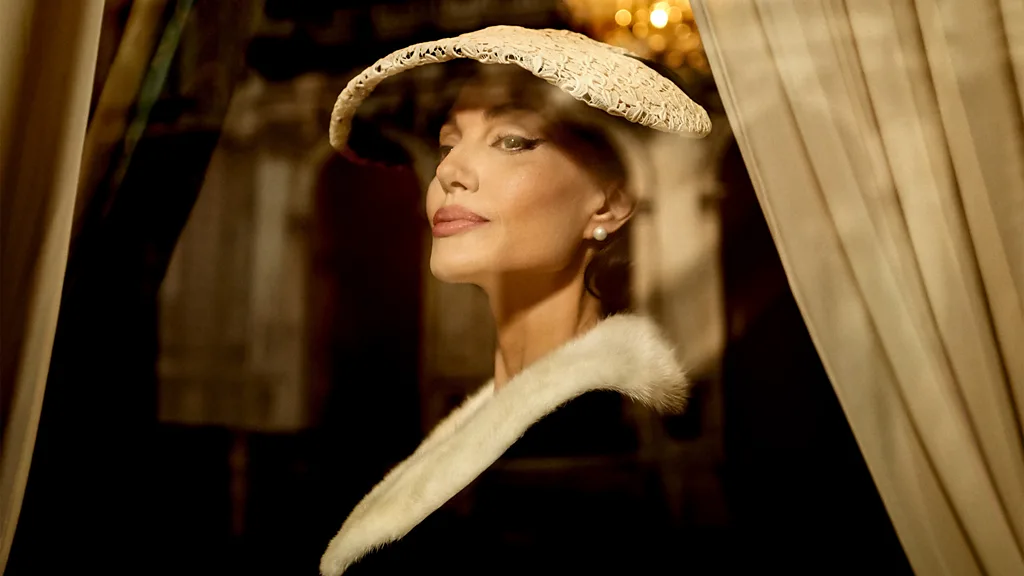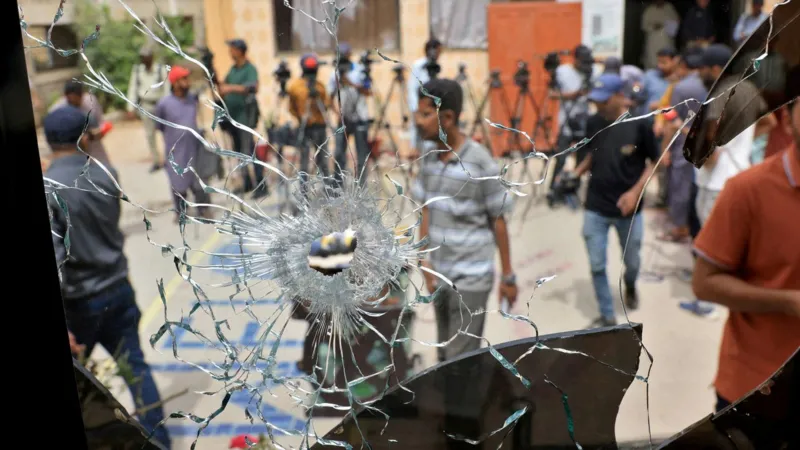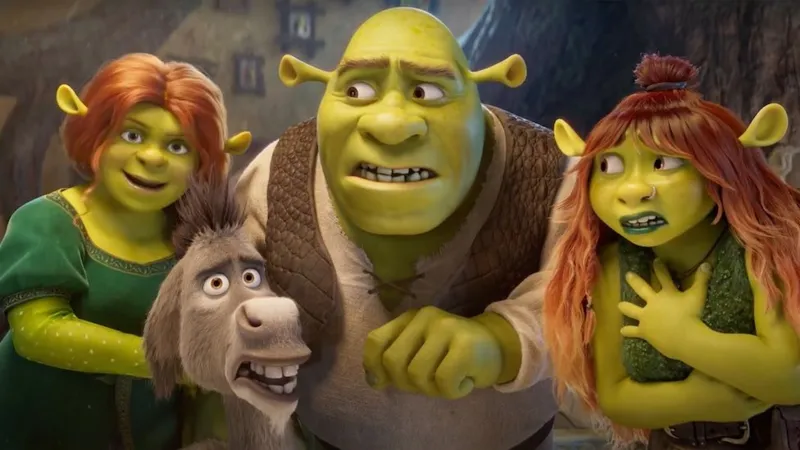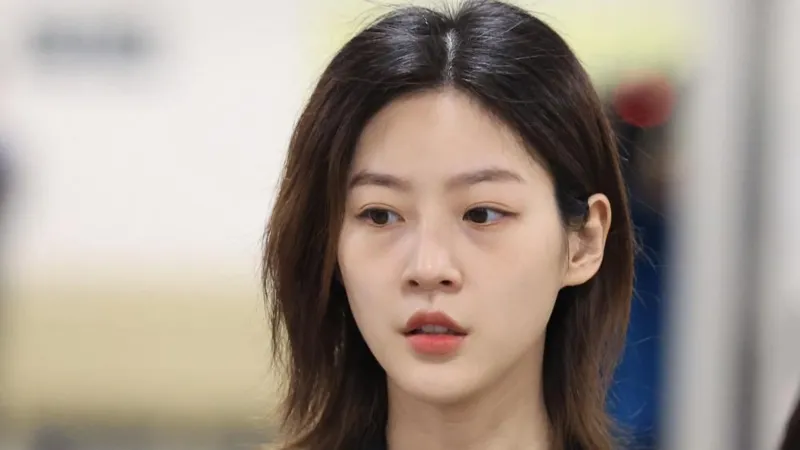Film review: 'Maria' starring Angelina Jolie

Pablo Larraín's fact-based drama, starring Angelina Jolie as opera diva Maria Callas, is witty and beautiful, but "this Callas is an icon rather than a human being", and some scenes are "less opera than soap opera".
Pablo Larraín seems to be fixated on the 20th Century's most glamorous and wealthy women. The Chilean director's fact-based dramas include Jackie (2016), which starred Natalie Portman as Jacqueline Kennedy Onassis, and Spencer (2021), which starred Kristen Stewart as Princess Diana.
Now he's completed his trilogy with Maria, in which Angelina Jolie plays one of history's most celebrated opera sopranos, Maria Callas. The fact that both Callas and Kennedy had long relationships with Aristotle Onassis is another link between these films, although, sadly, Portman doesn't make a surprise cameo appearance as Jackie O.
The difference between them is that while Jackie and Spencer had something distinctive to say about their heroines, Maria wafts around without quite settling on what it wants to say.
Written by Steven Knight, who also scripted Spencer, the film opens in 1977 Paris, with Callas's dead body being removed from her chandeliered apartment – not the most original of places to start a biopic. The narrative then rewinds by a week to take us through her final days.
By this point, she has long since given up performing, and she spends her time under the watchful eye of her butler (Pierfrancesco Favino) and housekeeper (Alba Rohrwacher), both of whom are devoted to her, despite her insistence that they move her grand piano from room to room on a daily basis.
Her butler, by far the film's most touching character, is determined that Callas should see a doctor about all the pills she is taking, but she has other plans. She goes to an opera house to see if her ailing voice might be coaxed back to its glorious best (Jolie's own voice is mixed with recordings of Callas's), and she has an in-depth interview scheduled with a television crew. "This television crew," asks her butler, "is it real?" The answer is no. The crew members are hallucinations, and Callas knows it, but she has no qualms about chatting to her "visions", and so she strolls around Paris, talking to a non-existent interviewer (Kodi Smit-McPhee) who she names after a pill she has just taken, Mandrax. This imagined interview is a contrived excuse for Larraín to reconstruct episodes from Callas's past, some of them shot in different aspect ratios and in black and white. We see her singing for Nazi officers as a teenager in Greece during World War Two. We see her as a show-stealing last-minute replacement for another singer in Venice in 1949, a scene that echoes Leonard Bernstein's big break in Bradley Cooper's Maestro (although, unlike Cooper, Larraín has made the sensible choice not to give his star a false nose).
But the film's main preoccupation is her romance with Onassis (Haluk Bilginer), which begins at a cocktail party in 1957 where the shipping magnate boasts, a few feet away from her husband, that they are destined to be together. Back in 1977, Callas tells her staff that Onassis's ghost still visits her every night, so maybe she was obsessed with him until the end. Maria Callas was celebrated and talented in her own right, so it seems insulting that her boyfriend gets more attention than her towering achievements and her seismic conflicts. The Maria and Ari scenes are less opera than soap opera.
Maria
Director: Pablo Larraín
Cast: Angelina Jolie, Pierfrancesco Favino, Alba Rohrwacher, Kodi Smit-McPhee, Haluk Bilginer
Run time: 2hr 4m
That's not to say that they aren't engaging. Knight has written countless lines of spikily witty, quotable dialogue, and it's never a chore to watch a beautiful actor wearing beautiful outfits in beautiful Paris locations. But there is no urgency to Maria. We all know from the opening scene that Callas's week is not going to end with a miraculous comeback, so her physical and mental wanderings don't have any tension or momentum.
The film is also too adoring and reverential to let us sympathise with its supposedly fragile heroine. Unusually for someone who is drug-addled and terminally ill, Jolie's Callas never looks anything less than magnificent, and she is always supremely dignified, poised and confident, out-quipping everyone who crosses her path. "What did you take," asks her butler, after his boss has been to her well-stocked medicine cabinet. "I took liberties all my life," she replies, "and the world took liberties with me".
As that unlikely exchange might suggest, this Callas is an icon rather than a human being. Larraín and his team refuse to take her down from her pedestal, so they don't imbue her with any of the vulnerability or the playful vivacity that the real Callas has when she winks and laughs at the camera in snippets of footage over the closing credits. Throughout the film, various people draw a distinction between "Maria" the woman and "La Callas" the superhuman diva. Its title notwithstanding, Maria is definitely about "La Callas".
Source: BBC
























































